|
6 December marks 80 years since Ruperra Castle was gutted by fire during the second world war. To commemorate the event we are telling stories from our book, Ruperra Castle War and Flames 1939-46. The 181st Regiment of the Royal Army Medical Corps were already billeted in the Castle. Frank’s unit, the 152 which became absorbed into the 181, lived outside in bell tents in the Castle grounds. There was also a detachment of drivers for the Royal Army Service Corps for the ambulances kept at the back of the Castle.
Before Frank was introduced to his wife, they used to go to Bedwas Hall on a Friday night on the ‘passion wagon’ from Ruperra, which dropped them off and picked them up. His future mother-in-law, a member of the British Legion committee, every night made sandwiches for the soldiers in the Machen Rugby Club. There was a regiment of the Indian Army attached to unit which would call out, ‘Johnny come and have a cup of chai’. They would bring their mules camped on a field the other side of the Castle up to the gravel on the east side of the castle to be loaded. The training included putting large medical panniers on either side of the mules. This used to frighten Frank to death, because they would kick out when having the panniers strapped down. The Indians used to hold the mules steady, but you’d often see them dragged along the floor for about 30 yards if the mule bolted. But they wouldn’t let go, they were very brave. Then they’d take them back to their field to unload them again.
Two of the unit would walk behind each Indian soldier with his loaded mule, carrying a stretcher with a blanket inside, walking about 20 miles a day. The handles of the stretcher would end up between the webbing of the uniform because of blistered hands. Frank wore out a new pair of Army boots one fortnight while he was away. The sergeants forbade people to give drinks of water. "Water bottles were carried on their sides, a full pack on our backs and a gas mask in front plus a steel helmet. It was exhausting but that was the training. They must have intended training them for a mountainous region, but in fact we were sent to the desert! They went right up in the mountains, with marvellous views which weren’t really appreciated at the time. “On manoeuvres, we slept in the fields with their gas capes wrapped around us. The mules stampeded through our field one night. I jumped up from the ground and managed to get to one side just in time as a mule came leaping over me. Of course the Indians had to catch them then, but they were good at it, fair play. Probably there were about 50 mules - it seemed more the night they stampeded."
"When I went back there after the war, I got talking to a chap who turned out to be Mr Lewis and he remembered me coming in the café. In the Machen Working Men’s club - the steward there was a lady called Mrs Cann. “At Ruperra we were billeted in one of the towers at the back with eight or ten of us all the way round that room. In the hall there was a mess room the officers and the clerical staff – we were all upstairs; we were three companies about fifty in each company, including officers and NCOs. The Service Corps - RASC - were there the same time with us with officers for each company. The officers were in one wing of the castle and us in the other. The big hall was the dining room for us men and they’d serve us there from the basement cookhouse. They used the ambulances to go to Abergavenny to the depot to get the rations." "Soon after he was sent up to Scotland but he kept writing to me and when he had leave he came down and we were married in Rudry Church. Straight after he went out to North Africa. He was away four years and when he came back he couldn’t settle at first, the war did these things to them, they couldn’t help it. You don’t know what other people are suffering unless you’re going through it yourself. He wouldn’t talk about it. He was never even willing to travel after the War; he said he’d travelled enough. But it transpired that he had actually fought at Monte Cassino and possibly never recovered properly. "
"Soon after he was sent up to Scotland but he kept writing to me and when he had leave he came down and we were married in Rudry Church. Straight after he went out to North Africa. He was away four years and when he came back he couldn’t settle at first, the war did these things to them, they couldn’t help it. You don’t know what other people are suffering unless you’re going through it yourself. He wouldn’t talk about it. He was never even willing to travel after the War; he said he’d travelled enough. But it transpired that he had actually fought at Monte Cassino and possibly never recovered properly." After Ruperra... Later, half the unit 181st Regiment of the Royal Army Medical Corps volunteered to join an airborne glider division and left the castle. Franks Baumers' half went to Talycoed, which was where they heard that the Castle had burnt down. Frank Baumer remembers... "Our unit was right there behind the battle line to receive all the casualties. Over our 3 ton vehicle we had a canvas sheet and tents for the medical unit. The stretcher bearers would bring the casualties a short distance to us in ambulances and we used to see to them, give them a cup of tea, which was very much appreciated. Then the medical officers would take over. That was where we got our first experience of proper war. “Being sent abroad they joined the UK 14th Field Ambulance Unit in the Gaza strip, and ended up at Alamein. There it seemed that for a long time nothing happened. Then one night General Montgomery came to give a talk. It was very quiet. ‘Be prepared,’ he said, ‘tonight we’re going to hit them for six.’ Around 10 o’clock everything opened up and you could feel the desert shaking. "Then they were sent by ambulance down the line to Cairo or Alexandria, to the Army medical units there and the Queen Alexandra nurses. "One time, as I was bandaging a chap’s leg and talking to him to take his mind off things, I asked him where he came from because I could hear he was Welsh. ‘Oh’, he said ‘It’s a little place, you wouldn’t know it.’ So I said, ‘I don’t know, it’s possible, where is it?’ He said ‘It’s a little place called Machen.’ I said ‘Do you know Jim the Post?’ ‘Jim the Post!’ he said and I can see his face now. ‘I’m Fred Buckley, I live in 3 Club Row.” Jim Bell remembers... “After Ruperra we went back up to Scotland and then to North Africa through Sicily and Italy to Austria and we were there three years. While we were up in Scotland, I volunteered to be an orderly, because I thought that if we’re going abroad now, you’ve got the ambulance and you’ve got somewhere to sleep. So the ambulance driver took the first aid course and then I took the driving course so I could drive if he got wounded and if I was wounded he could do the first aid. “When we first went over to North Africa in ’42 there were cardboard tanks put on the road side so that the Germans would think we had tanks. We were in a little farmhouse with a camouflage net over the trees. We’d got our heads down this one night and suddenly noticed how quiet it was. We found our regiment had gone, retreated back and the Germans were advancing. If we hadn’t woken up then, they’d have taken us prisoner. On another occasion, we heard the locals calling because they had a wounded American pilot who had bailed out. They could have handed him over to either side and luckily enough for him we were there and could take him back to our first aid post. “One time, when we were half way up through Italy, and although the Italians had surrendered there was very little food in the local general hospital Claggenfort. There was an Italian interpreter there who had been conscripted when returning from England to serve with the Germans, whom we invited to come and eat with us as we were then having American rations which were marvellous compared with the British. I don’t know where they got it from - and chocolates and sweets. He asked me to write home to his parents who lived in Blackpool because they didn’t know here he was. “Monte Casino in Italy was called the ‘mad mile’ because the ambulances couldn’t get up there. The stretcher bearers had to carry the wounded down from the top of the mount to our jeeps. The Germans could see us and they could have shot us - all we had was the Red Cross flag on the jeep. "We went to pick some men up and one turned out to be my brother. No one was able to do anything for him at any of the dressing stations so we had to go take him right back to the general hospital. “Back at the front the next day I picked up his two mates from the Enniskillen Fusiliers, At this point we had help from the American Field services and often they were professors and doctors doing their 6 month national service and going back to America. “The American ambulances were very narrow with two stretchers on the top and a bracket each side. It was difficult to treat the wounded There was only a small space between them. In our ambulances there was a seat at the back so that treatment was possible." 80 years on and Ruperra Castle is still a ruin at risk of collapse - help Ruperra Castle Preservation Trust save the Castle and surrounding buildings and gardens by campaigning to secure them to use for community benefit, and to ensure a better future for our precious local heritage. Help us secure a future for this important monument - become a member before the end of 2021 and we will send you a free copy of our book – Ruperra Castle War and Flames 1939-46. You can also buy the book separately for £6.
0 Comments
6 December marks 80 years since Ruperra Castle was gutted by fire during the second world war. To commemorate the event we are telling stories from our book, Ruperra Castle War and Flames 1939-46. The British Indian Army, officially renamed the Indian Army, was the principal army of the British Raj before independence in 1974.
“The excitement was over in about half an hour and not knowing anything about the war, we later learned that that it was just after Dunkirk and soldiers were being sent to Ruperra from all over the place to recover and reform their units.” John Rowlands, then a schoolboy, remembered the Indian soldiers bringing three or four strings of horses through Machen, up the Dranllwyn and over the mountain for training. “One afternoon as I arrived back for afternoon school, a mule came galloping down the Dranllwyn. He’d broken loose and everybody was running out of his way. I got hold of the rope that was loose but he took me down to Ted Harris’s shop before I could stop him! Then I handed him over to the soldier that had come back with a horse to look for him. "When I got back down to school I was a quarter of an hour late and I had the cane for it. That’s how I remember it so well. They half believed me, but not entirely, and although someone said they’d heard that I’d stopped the runaway horse, I never had an apology and I had a good two across the hands for it."
John Hicks from Machen remembered the Indian soldiers wearing tight boots and jodhpurs, with a dark top coat. “We used to watch the Indian soldiers making chapatis. There was enough room for three people to stand around what seemed like a big bake stone resting on four steel rods, with coal glowing underneath. When they put the mixture on it was like oatmeal and they’d spread it with their fingers and turn the chapatis by throwing them up in the air. Then, when each one was cooked, they’d stack them up on a big steel plate and take them to a big marquee where all their tables and benches were laid out. “Their sleeping quarters were in the same sort of tent but with divisions and camp beds in there. The horses were under canvas further up the track, but they used to tire them out in the day and I think they had a feeding tent for them there as well.” Bernard Spooner said, “The Indian soldiers at the Castle used to make us children very welcome. The first chapati I ever tasted was down there! We loved the tea they made in brilliantly clean stainless steel buckets using condensed milk because of course for us, sugar was rationed.”
80 years on and Ruperra Castle is still a ruin at risk of collapse - help Ruperra Castle Preservation Trust save the Castle and surrounding buildings and gardens by campaigning to secure them to use for community benefit, and to ensure a better future for our precious local heritage. Help us secure a future for this important monument - become a member before the end of 2021 and we will send you a free copy of our book – Ruperra Castle War and Flames 1939-46. You can also buy the book separately for £6.
6 December marks 80 years since Ruperra Castle was gutted by fire during the second world war. To commemorate the event we are telling stories from our book, Ruperra Castle War and Flames 1939-46.
Some had been part of the BEF, the expeditionary force intended to drive the Germans back from France. These soldiers after escaping from Dunkirk came to Ruperra and stayed for a while to recover while their units were being reformed.
After landing, a train took the unit to Hereford where they slept on the race course in the open air. Moving on to Ruperra in the morning they were given just two blankets to sleep on the floor in the Castle, but they didn’t have to go outside for toilets or washing and their own cooks made the food. No baking was done since all the equipment had been left in France. Unfortunately, because the Germans were expected to invade Brittan at any minute they had to get up in the early hours of the morning, dress in full kit, proceed to sit in the parked coaches for a couple of hours and then have drills to occupy them. As Norman’s unit was lined up ready to move out they saw the Second Field Bakery unit was moving in - also from Dunkirk. John Rogers, a baker from Deal in Kent, a member of the 2nd and 3rd units had gone over to France in 1940 with the BEF and had the same experience. At two o’clock one morning they were called out of the cotton mill bakery and issued with 30 rounds of ammunition for their rifles because the Panzer tanks were coming. Leaving behind the dough in the troughs, they had to get down in the ditches either side of the road with their rifles and bayonets. Then back to the mill where the dough was all blown up all over the floor to start baking again.
The NCOs, being away from the main unit, had bedside lights. One of the beds in his two tiered bunk was empty so John fixed a hanging wire so that after lights out he could switch on and lie in bed reading. One night – he connected a screw bulb. Flash! His hand went blue and all the buildings around the Castle went into darkness. There were panic stations and no more bedside lamps! John returned to Ruperra in 1943 after the Castle had been burnt down and slept under canvas in the grounds. He said that this time the mobile bakery equipment was at Ruperra which became the number one bakery training base. Men were being recalled from the Middle East and from various parts of England. We baked under marquees and the ovens stayed on the trailers with canvas over. We did the baking out in the field under canvas.
John said that they trained a whole American unit at Ruperra. They were sleeping under canvas too but they had their own quarters. Being with the Americans was an interesting experience. There was always plenty of food. Big bowls of sugar and ‘Help yourself!’ packets of Camels, and plenty of chicken! At the end of the war, John did some very valuable work in France clearing the airstrips of mines. While they were waiting for bakery equipment to arrive a group were given a three ton lorry, a length of chain, and a sergeant. The retreating German army had put poles in the airfields to stop our planes from landing. We had to fix our chain to the poles so as to pull them up.
George Archer himself from Machen had joined up into the RASC when he was twenty, and then worked as a mobile bakery trainer.
When he spent time in Egypt the mobile bakery was used as there were a lot of British soldiers still out there after January 1946. He was up near the Aswan dam and it was so hot that the bread used to go bad because it couldn’t cool down properly. They realised eventually that that was why the Arabs ate naan bread! Iory Pearce from Chirk was already a baker before he joined up aged 18 in 1944, but was sent to join a bakery unit being formed at Ruperra. The Castle was already burned down when his unit was there and they had to fall in and be checked every morning on a bit of square in front of the Castle. A nissen hut along side was used as a dance hall with a piano and drums, an eating place, the mess and the NAAFI shop. He didn’t remember doing any baking at Ruperra but from there he visited Barry, Penarth, and the Drill Hall in Caerphilly where he met his brother in the Royal Welsh Fusiliers. The 40 men in his unit were sent overseas in 1944/45 or ‘round the world' as he described it. Having hardly been out of Chirk, all these places seemed so strange. They visited India, Ceylon, the South China Sea and Japan. In India, on twenty mile route marches about 7 o’clock at night at sundown they’d often be walking alongside hundreds of camels in a camel train. While at Hong Kong he went up the Yangtze to Shanghai and from there to Kure in Japan where he met his brother again! He took him to see Nagasaki after the bomb. There was nothing there except one concrete building left standing! He wondered how he’d managed to find his brother in Caerphilly, and then amongst all the hundreds and thousands of soldiers in the Far East, in Yamaha and Kure! When at last he got demobbed all he’d done was bake bread in Portadown in Ireland and in Hongkong.
Towards the end of the war, they we were in Weimar where we joined up with the Russians. The Germans were retreating all the time and our job was to clear them out of the houses to ensure that there were no soldiers with ammunition hiding there, and that the owners of the houses were safe when so much looting was going on. 80 years on and Ruperra Castle is still a ruin at risk of collapse - help Ruperra Castle Preservation Trust save the Castle and surrounding buildings and gardens by campaigning to secure them to use for community benefit, and to ensure a better future for our precious local heritage. Help us secure a future for this important monument - become a member before the end of 2021 and we will send you a free copy of our book – Ruperra Castle War and Flames 1939-46. You can also buy the book separately for £6.
6 December marks 80 years since Ruperra Castle was gutted by fire during WW2. Join us for an hour-long drama on the evening of Thursday 9 December, sharing both the sad and funny aspects of that time.
Cwmni Cwm Ni (Our Valley) a Rhymney Valley based theatre group who work in both English and Welsh, have dramatised some of the recollections of wartime soldiers and local people. This hour-long drama/documentary records both the sad and the funny aspects of the story and will be performed in English. The drama is being held in Machen United Services Club, a venue which soldiers stationed at Ruperra Castle used to walk to for entertainment. Doors open at 19:30, drama starts at 20:00, the bar will remain open after the performance finishes at 21:00 and there will be a 1940's tea dance with light wartime refreshments being served. Due to Covid guidance for theatre performances, guests will be asked to show proof they are either fully vaccinated using a Covid pass, or evidence of a negative Covid test in the last 48 hours. Tickets are £6 (£5 for concessions) and there are a limited number available. Book your tickets 6 December marks 80 years since Ruperra Castle was gutted by fire during the second world war. To commemorate the event we are telling stories from our book, Ruperra Castle War and Flames 1939-46. A battalion of Dutch soldiers, the 'Princess Irene Brigade' were stationed at Ruperra Castle between the 29 August and the 10 October 1940. Some of the Dutch soldiers described in this account had escaped from Holland before the Germans invaded and had landed at Milford Haven. Six or seven weeks later, they came to Ruperra.
At first the food was not good but at night there were bus services to take us to Cardiff to the cinema or a good restaurant. The surroundings were splendid, and we remained in Ruperra Castle, for two months. We couldn’t criticise our training even though shortage of weapons enforced the usage of fairground guns but with instructions from military police.
Sergeant Kleerkpoper found good opportunities to play the piano in the Banqueting Hall, and encouraged other musicians in the regiment to give good performances for the soldiers. They left Ruperra in September two days before Yom Kippur, 1940. After Ruperra... At the end of the war members of a concentration camp were listening for the firing outside and hoping it was the Princess Irene Brigade coming to rescue them. The Royal Netherlands Princess Irene Brigade landed in Arromanches on 8 August 1944. Attached to the 6th British Airborne Division, the Brigade took part in Operation Paddle for the liberation of the Pays d’Auge area starting on 17 August. The Princess Irene Brigade was thus the first Allied unit to liberate Pont-Audemer on 26 August 1944. After the Normandy campaign, the Irene Brigade took part in the liberation of Northern France and Belgium, before returning to liberate the south part of their native land in September 1944 as part of Operation Market Garden. 80 years on and Ruperra Castle is still a ruin at risk of collapse - help Ruperra Castle Preservation Trust save the Castle and surrounding buildings and gardens by campaigning to secure them to use for community benefit, and to ensure a better future for our precious local heritage. Help us secure a future for this important monument - become a member before the end of 2021 and we will send you a free copy of our book – Ruperra Castle War and Flames 1939-46. You can also buy the book separately for £6. To commemorate 80 years since Ruperra Castle was gutted by fire on 6 December 1941, we are offering a free copy of Pat Jones-Jenkins' book, Ruperra Castle War and Flames 1939-1946, for any new members that join before the end of 2021. An illustrated account taken from recorded testimonies of the soldiers stationed at Ruperra Castle during the second world war - learn about the night the castle was burnt out.
6 December marks 80 years since Ruperra Castle was gutted by fire during the second world war. To commemorate the event we are telling stories from our book, Ruperra Castle War and Flames 1939-46. The Royal Corps of Signals in 1939, already consisted of qualified ‘tradesmen’, that is wireless and telephone operators, dispatch riders, linemen, electricians and so on, who had received extra training and therefore extra pay. However the first soldiers to be billeted at Ruperra Castle were from a unit of the Cardiff Territorial Army (TA) who hastily got together to form the Royal Corps of Signals when the outbreak of war seemed imminent. They were to be trained as dispatch riders and to service the cars and transport needed. There were no mobile phones in those days!
“Then a couple of days after the outbreak of war, I told my mother that we were definitely moving and didn’t know when we’d be back, so she made me some Welsh cakes as if to say ‘see you in 12 months time.’ Then Western Welsh buses arrived and took us to Druidstone House in St Mellons. And we were back home at 4 o’clock!” “All of a sudden, ‘A’ Company will proceed to Ruperra Castle.’ Nobody had heard of it! When we arrived it was a bit awesome because there was nothing there but the Castle and the transport area.” Gordon Crooke from Fairwater had joined the TA but then made out that he was 17 so as to join up. “We were the first soldiers in to the Castle and the only ones there at that time. It had been totally emptied and workmen were moving out. We could see little bits of the wonderful staircase now boxed in with strange looking white timber. We were impressed by the amount of work that had gone on to protect the Castle but found but although we given ‘bedding space on the third floor, there were no bunks, and no beds. "
"The telephones and Morse Code machines were from 1918 and not all had been checked over. The trainees had to carry the big heavy radio sets up into the woods behind the Castle. A real struggle for one man on his own, but too awkward for two because of their big batteries. One time, having gone up carrying everything, and done everything according to the book, no message was sent or received all day. Back at camp it was found that the lines running up to the telephones hadn’t been set up to work either. It had been an absolute fiasco."
"At Christmas time 1939, we received the first intake of the Militia boys (conscripts) to train them for all sorts of communication work. It was a very cold winter. They had to do their share of standing guard and there weren’t enough army overcoats to go round. Since they hadn’t asked to join up, they had to be treated properly, so all the TA lads had to hand in their army overcoats to keep them warm."
"Then all of a sudden a different presence arrived. Five foot three, a little bristly moustache, he came from a regular army unit. And his job was to turn us into soldiers and he did! Now serious training work was being carried out by an army officer for vehicle repair and I was his right hand man. There’d be about 50 to 100 men coming in at a time to be trained for signals work." "These vehicles were needed to pick up supplies of food, clothing and bedding for the surrounding camps but there were none available in 1939 and so we had to build them. The Army was buying in all kinds of old cars from the 1930s. Anything over 20 HP, including Sunbeams, American Buicks, Packards, were brought in to Ruperra from all over the country. We’d go up to Birmingham or Wolverhampton and bring a convoy of them back. Then the bodies were cut through behind the driving seat and a box body put on to the back to make it into van to carry radio sets for communications. We’d work on the vans where ever they were, they carried radio sets for communications as well as troops and were kept in and around the building." One day Jack Senior and Cyril Cozens loaded a van up with fairly modern (1920) radio equipment and troops and left Ruperra at quite a quick turn of speed, towards the Cardiff road. After a while they noticed that ‘the blokes in the back are quiet, aren’t they, they must be hanging on like grim death.’ "We stopped to look and there was nobody there! The tail boards hadn’t been put on so when we started off the whole lot of them had just shot out. They were still on the parade ground when we got back”. Arthur Lewis from Newport was one of a 100 of young conscripts sent to catch a train for Monmouth and wait in a field there until picked up. There were still 30 of them waiting at the Royal Corps of signals post until evening when they were transported to Ruperra. However, no more trainees were expected and all the trained men had already been drafted They were given a canvas bag to stuff with straw to lie down in the Banqueting Hall, and at last given a mug of cocoa and some doorstep sandwiches. He remembered his first sleepless night as a soldier at Ruperra Castle as he lay on the floor looking up at the minstrel gallery in the dim light of hurricane oil lamps. Next day the transformation from ‘Mr’ to Signalman 2362012 took place, the weather was kind and bell tents were erected on the grass in front of the Castle where he slept well there for the remaining stay. A few days later they heard about the evacuation from Dunkirk and all leave was cancelled.
After Ruperra... Arthur Lewis was transferred into the 102 Yeomanry, going to North Africa with the First Army and was involved in some heavy fighting in Algeria and then Monte Casino in Italy. Gordon Crooke did not join the light car section of 20 beautiful little Austins formed by the 38th Royal Corps of Signals in June 1940. The dispatch riders were trained to drive them and were sent to the Middle East. After the war, Gordon made enquiries but not one of them returned. Gordon himself went to India, Burma and Malaya. Out of the original TA unit at Ruperra, Gordon found on attending a reunion after the War that only himself, three Cardiff boys and one from Caerphilly had survived. Jack Senior was taken prisoner in Italy and transferred to a German camp when Italy surrendered. When Germany surrendered, he left the camp, managing to precede the advancing Russians and met up with some Americans sitting on a jeep in the middle of a road. He flung his arms around the big black captain’s neck and kissed him! Then came the difficult task of persuading him that they were really British soldiers. They were in the middle of Germany! The officer used this foolproof method and sent for one of the unit who grilled them as follows.
"So the Captain gets a bottle, knocks the top off and says, ‘Have a drink!’ We did and the three of us passed out on the floor. We hadn’t had any whisky or anything like that for a long, long time and there was the shock and everything. One tot out of a bottle was enough.” 80 years on and Ruperra Castle is still a ruin at risk of collapse - help Ruperra Castle Preservation Trust save the Castle and surrounding buildings and gardens by campaigning to secure them to use for community benefit, and to ensure a better future for our precious local heritage. Help us secure a future for this important monument - become a member before the end of 2021 and we will send you a free copy of our book – Ruperra Castle War and Flames 1939-46. You can also buy the book separately for £6. 6 December marks 80 years since Ruperra Castle was gutted by fire during the second world war. To commemorate the event we are telling stories from our book, Ruperra Castle War and Flames 1939-46.
80 years on and Ruperra Castle is still a ruin at risk of collapse - help Ruperra Castle Preservation Trust save the Castle and surrounding buildings and gardens by campaigning to secure them to use for community benefit, and to ensure a better future for our precious local heritage. Help us secure a future for this important monument - become a member before the end of 2021 and we will send you a free copy of our book – Ruperra Castle War and Flames 1939-46. You can also buy the book separately for £6.
|
Archives
February 2024
Categories
All
|
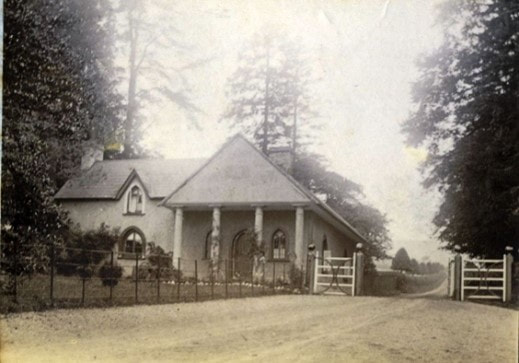
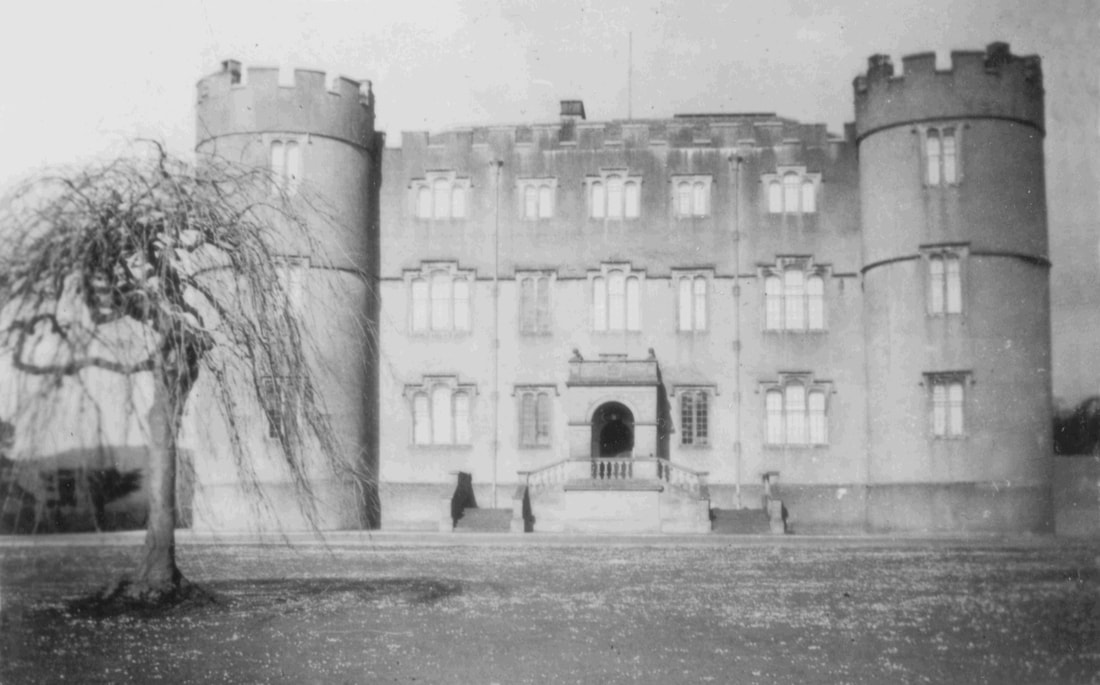
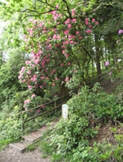
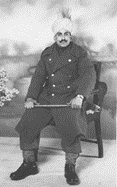
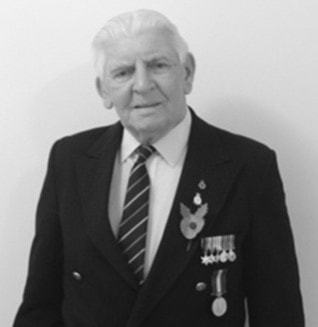

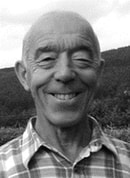
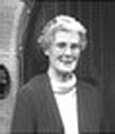
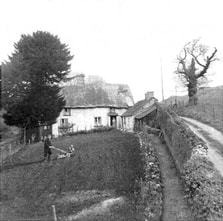

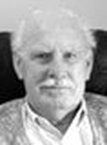
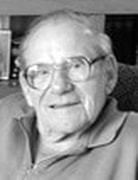
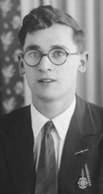
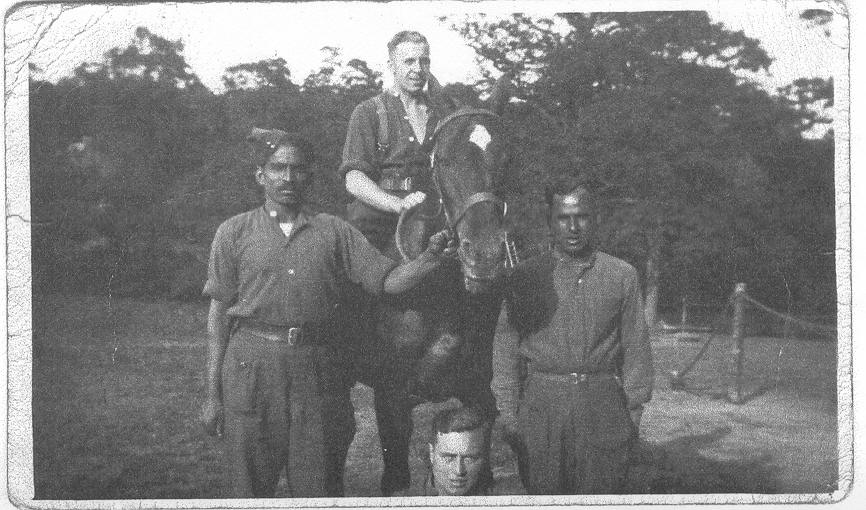
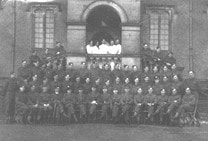
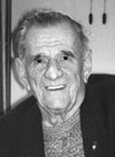
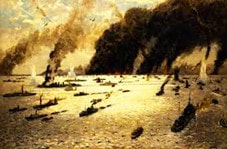
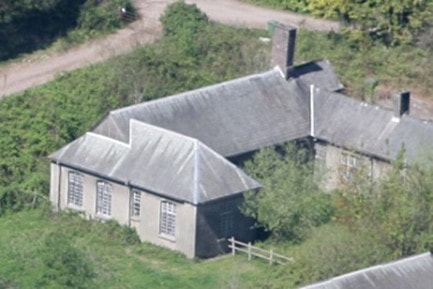
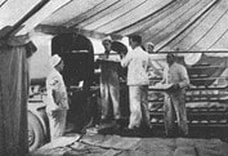
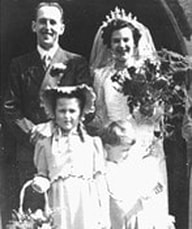
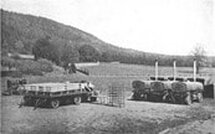
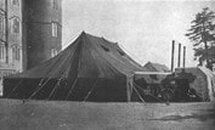
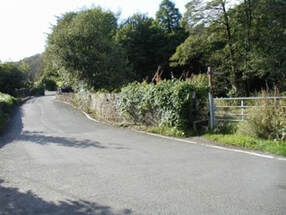

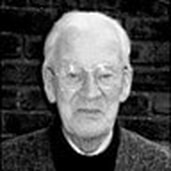
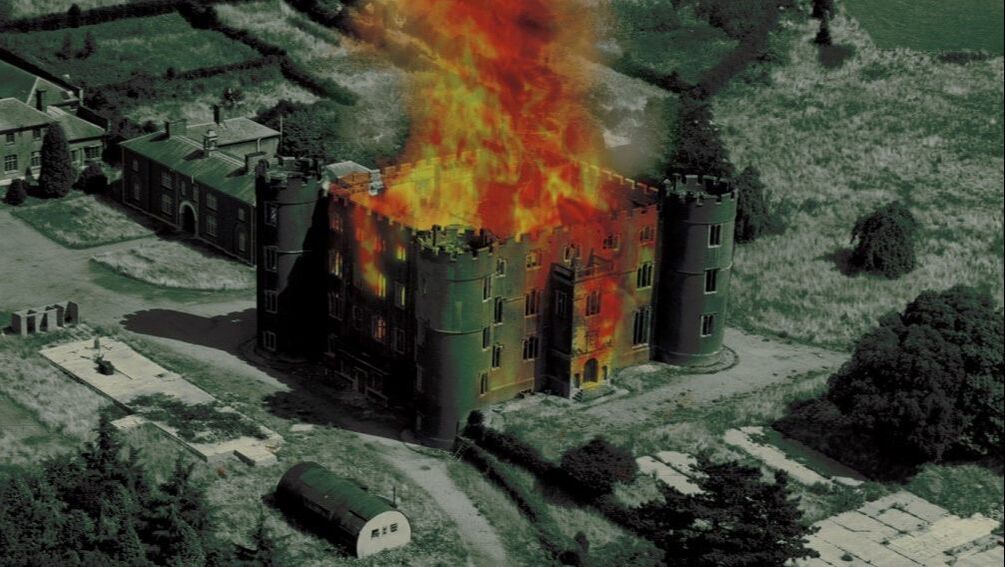
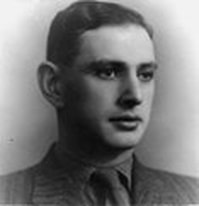
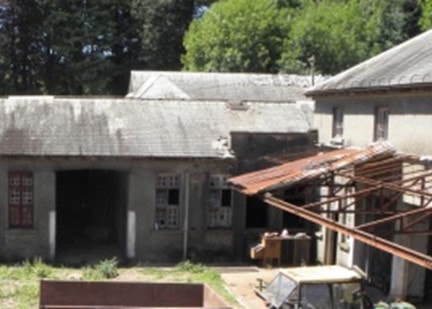
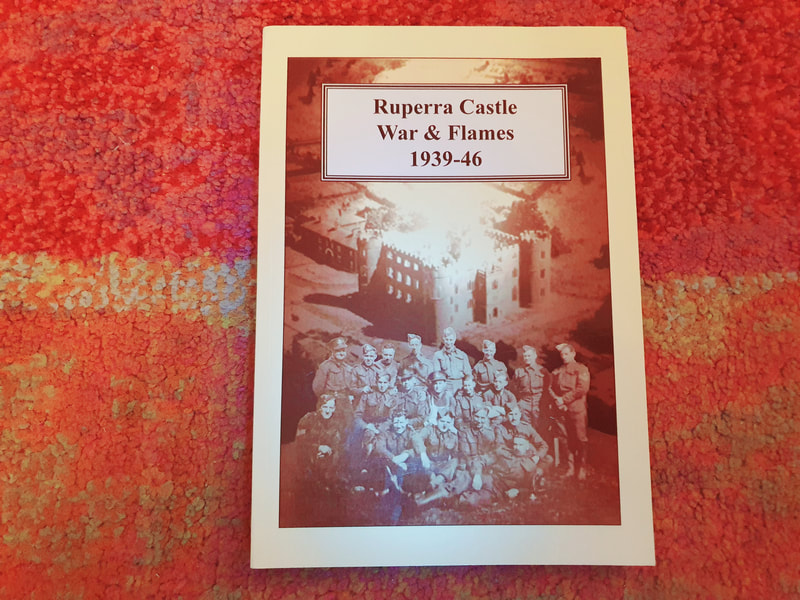
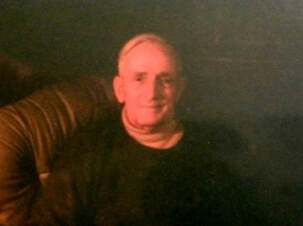
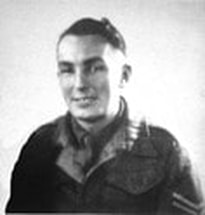
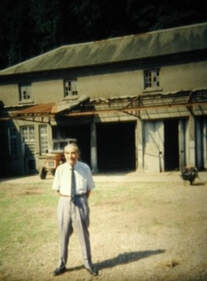
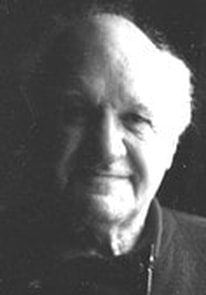
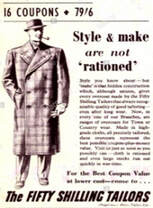
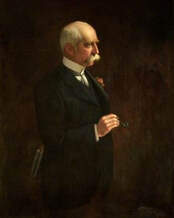
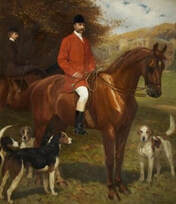
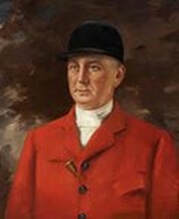
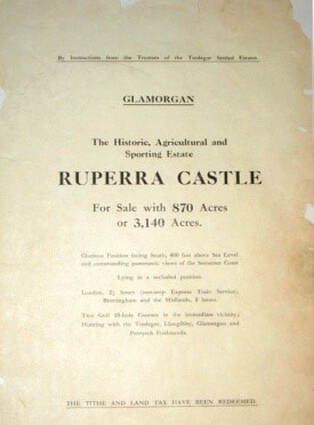
 RSS Feed
RSS Feed
